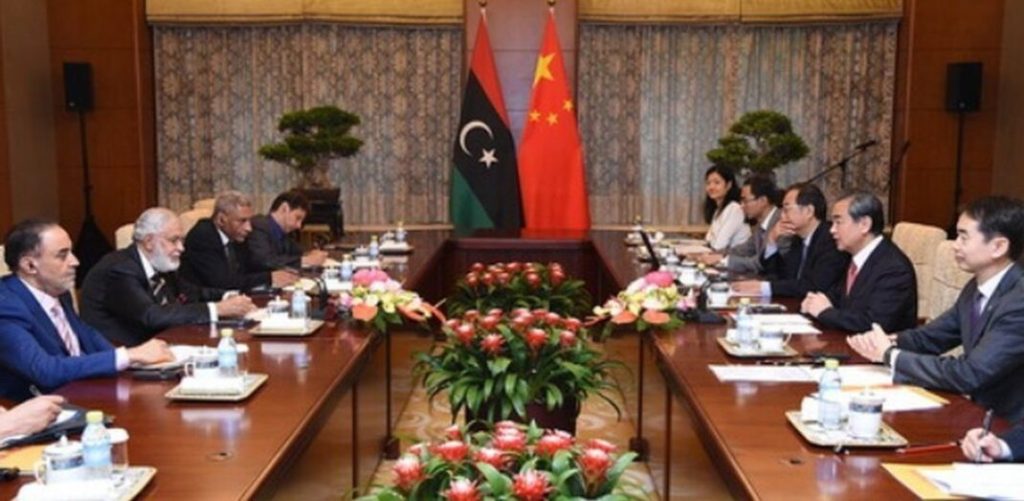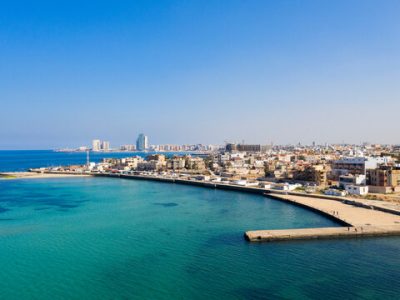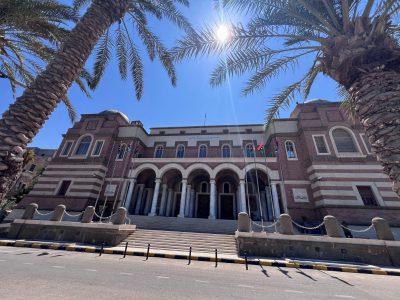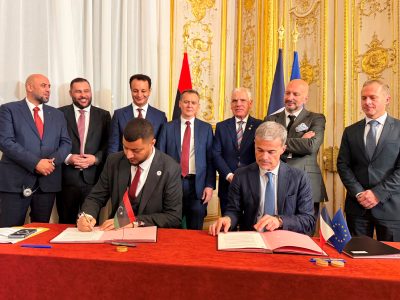Where Does Libya Sit Amid Shifting International Relations?
The rise of Chinese influence and Beijing’s alliance with Moscow and New Delhi has become one of the most prominent features of the ongoing transformation in the international order, and its impact is increasingly visible in the Mediterranean, particularly in Libya. The world is currently witnessing a profound restructuring of power balances, with China emerging as an economic, technological, and military powerhouse, driven by a clear ambition to play a central role in shaping new global arrangements. In Libya, this approach has manifested in large-scale investments in energy, infrastructure, and logistics projects – such as proposals to transform the deep‑water port of Tobruk into a logistics hub and build a $10 billion refinery. This was reflected in Beijing’s hosting of the 2025 Shanghai Cooperation Organization (SCO) Summit, where President Xi Jinping met with his Russian counterpart Vladimir Putin and Indian Prime Minister Narendra Modi. The summit was not merely a diplomatic gathering but also a clear signal that China seeks to transform the organization into a parallel platform to Western institutions, underscoring its aspiration to lead an alternative security and economic system.
This trajectory has coincided with the expansion of the BRICS bloc in 2024 and 2025 to include new members such as Egypt, the UAE, Iran, Ethiopia, and Indonesia. The enlargement strengthened the bloc’s demographic and economic weight and paved the way for broader coordination on energy, finance, and supply chains independent of Western dominance. At the same time, China has sought to develop a more pluralistic financial order by promoting the use of the yuan in international trade and expanding local-currency settlements with Russia, in a bid to reduce reliance on the U.S. dollar and mitigate the impact of American sanctions.
Relations between Beijing and Moscow appear more consolidated than ever. Following the closure of European markets to Russian energy, Moscow pivoted eastward, finding in China its principal partner. The “Power of Siberia‑2” pipeline project symbolizes this shift and is poised to reshape the global gas map in the early 2030s. However, the partnership is not entirely balanced: China holds the upper hand in negotiations thanks to its vast market power and its ability to dictate favorable pricing terms. Meanwhile, bilateral trade reached approximately 245 billion USD in 2024. Despite slowing growth for the first time since 2022 due to sanctions and tighter compliance measures, China remains a vital lifeline for Russia’s economy through energy, technology, and strategic goods. Moscow’s pivot eastward also coincides with its efforts to revive energy contracts in Libya, including a potential agreement with Tatneft to build a new refinery in the country.
India, meanwhile, occupies a unique position within this landscape. Although a member of BRICS and the SCO, New Delhi also plays a key role in the Quad security alliance alongside the United States, Japan, and Australia. India has continued purchasing discounted Russian oil despite U.S. objections, reaping significant domestic economic gains. Simultaneously, relations with China have seen tactical de-escalation following border understandings, which opened the door to dialogue on reducing trade imbalances. In this sense, India practices a form of “new non‑alignment,” leveraging the West for technology and defense, Russia for energy and arms, and China as a vast market, all while safeguarding its strategic autonomy. In addition, New Delhi has recently discussed reviving Indian oil and gas projects in Libya, signalling its interest in strengthening energy cooperation with Tripoli alongside its broader global engagements.
The implications of this trilateral axis for the international order are visible across multiple domains. In energy markets, the Power of Siberia‑2 pipeline could reduce China’s dependence on U.S. and other liquefied natural gas exports, exerting downward pressure on global prices and affecting major investment plans in the sector. Meanwhile, a Chinese‑backed refinery and logistics hub in Tobruk could influence Mediterranean energy flows and diversify Europe’s supply chain. In payment systems, the expanding use of local currencies and the development of the digital yuan provide emerging economies with new hedging tools against sanctions, though they do not yet displace the dollar’s entrenched dominance, underpinned by deep financial and institutional structures. On the regulatory front, China – through BRICS and the SCO – seeks to shape alternative standards in technology and finance, thereby limiting the West’s ability to unilaterally impose its economic and political conditions.
The United States is following these developments with mounting concern. The Trump administration’s second term views BRICS’ expansion and the growing reliance on the yuan as direct threats to the dollar’s status and to American financial hegemony. Its response has included escalating trade frictions through additional tariffs on China and India, stricter sanctions on Russian and Chinese firms, and intensified efforts to woo India with defense and technology deals to prevent its drift toward the Eastern bloc. U.S. officials have also expressed unease about Chinese and Russian projects in Libyan ports and energy sectors. At the same time, some American voices advocate a more pragmatic approach, one that engages Beijing on climate change and advanced technologies to avoid escalating competition into a full-scale confrontation reminiscent of the Cold War.
In sum, the rise of Chinese influence and its partnerships with Moscow and New Delhi marks the beginning of a gradual transition toward a multipolar international order. China is managing this ascent with notable pragmatism, investing in energy, trade, and alternative institutions – investments that now extend to Libya, where Beijing seeks to transform Tobruk into a major hub. Russia, for its part, seeks to offset European losses by turning eastward and reviving energy cooperation with Libya. India exploits its position to strike a balance among all parties, including re-engagement in Libyan oil fields. The United States faces a choice: to persist with confrontation through tariffs, sanctions, and containment, or to acknowledge the new plural reality and pursue a more flexible relationship with China and its partners.
Implications for the Arab Region and North Africa
This shift in global power balances is certain to impact the Arab world and North Africa, given their geographic location and weight in energy and natural resources. China is working to consolidate its footprint through the Belt and Road Initiative, which has entailed massive investments in ports, roads, and infrastructure projects in Egypt, Morocco, and Algeria. Libya has also emerged as a focal point: Beijing is accelerating multi‑sectoral investments in energy, infrastructure, and logistics in eastern Libya, with proposals for a deep‑water port, rail links, and a $10 billion refinery in Tobruk. The inclusion of Arab countries such as Egypt and the UAE into BRICS further expands their room for economic and political maneuver beyond exclusive dependence on the West.
Russia, meanwhile, maintains a military and political presence in Libya and Syria and seeks to reinforce its influence in North Africa’s energy markets, particularly through gas cooperation with Algeria and renewed contracts in Libya. India is emerging as a rising partner in the region through technological and services cooperation, alongside a growing interest in renewable energy and infrastructure investments; New Delhi’s talks to revive oil and gas projects in Libya illustrate this trend.
These dynamics offer regional states opportunities to rebalance their international relations and diversify their economic partnerships in line with their strategic interests. Yet they also present new challenges, especially as polarization between the West and the Eastern bloc intensifies – making the need for balanced, focused diplomacy more urgent than ever. Libya, while dealing with its own political quagmire, should be cautious of the new global environment, and should play its cards carefully.
only if domestic stability holds. To capitalize, Tripoli must shore up export logistics, pre-position strategic reserves, and safeguard pipelines and terminals. Operators with flexible tanker charters and Mediterranean hub access will be best placed to step in while rivals are rerouting through longer, costlier corridors.
The views expressed in this article are those of the author, and do not necessarily represent the editorial position of this publication.




